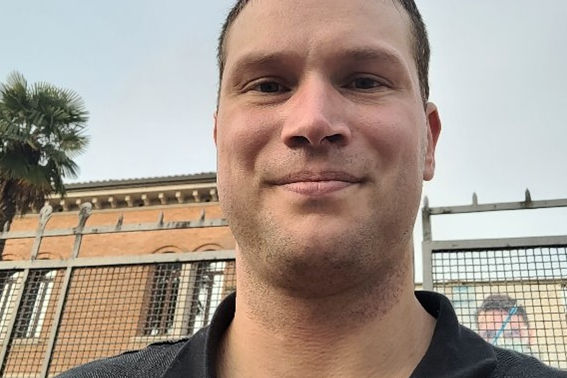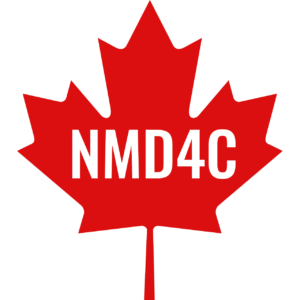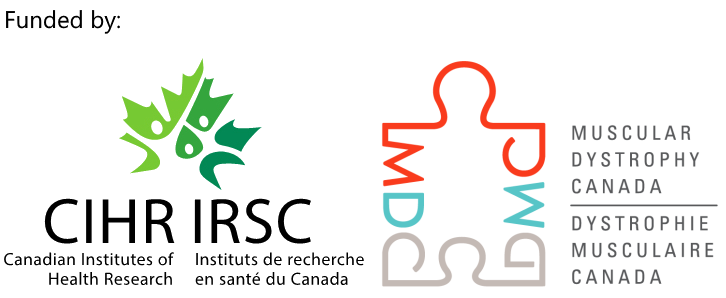Jean-Philippe Leduc-Gaudet

Assistant Professor, Medical Biology Department at Université du Québec à Trois-Rivières (UQTR)
Email Jean-Philippe
Research Interests: Skeletal muscle atrophy, Muscle disorders, Autophagy, Mitochondrial biology, Metabolic Complication
Google Scholar profileLinkedIn profile
ResearchGate profile
ORCiD profile
Twitter profile
Biography
Dr. Leduc-Gaudet is an Assistant Professor in the Medical Biology Department at Université du Québec à Trois-Rivières (UQTR). He completed his bachelor in Kinesiology and his master degree with a particular focus on mitochondrial biology, skeletal pathophysiology and aging at Université du Québec à Montréal. Following his M.Sc., he completed his Ph.D. studying the regulatory roles of autophagy & mitophagy in the maintenance of skeletal muscle health under the supervision of Drs. Hussain and Gouspillou (McGill University), where he received a Vanier Canada Graduate Scholarship. After completion of his Ph.D. in 2020, Dr. Leduc-Gaudet completed a postdoctoral fellow in Dr. Sandri’s lab (U Padova, Italy), working on characterizing novel genes and molecular pathways that control skeletal muscle health. In 2023, Dr. Leduc-Gaudet opened his own lab at UQTR to study novel genes and molecular pathways that affect skeletal muscle health, whole-body metabolism, and longevity. Dr. Leduc-Gaudet research program at UQTR also investigates how dysregulated mitochondrial quality control can be harmful to muscle cells. Indeed, mitochondrial dysfunction is a common underlying feature of many muscle-wasting conditions, including aging and neuromuscular diseases. In his research, Dr. Leduc-Gaudet combines genetic, molecular, cellular and physiological approaches to investigate signalling pathways regulating skeletal muscle mass and function.
Recent Publications
Desjardins, K, Taherkhani, S, Méthot, L, Castonguay, V, Leduc-Gaudet, JP. Insights into the influence of high-intensity interval training on skeletal muscle clock gene expression in insulin-resistant individuals. J Physiol. 2024. PMID:39159307
Roussel, MP, Ravel-Chapuis, A, Gobin, J, Jasmin, BJ, Leduc-Gaudet, JP, Gagnon, C et al.. Changes in Physiopathological Markers in Myotonic Dystrophy Type 1 Skeletal Muscle: A 3-Year Follow-up Study. J Neuromuscul Dis. 2024.11 (5)981-995 PMID:39031377
Girard-Côté, L, Gallais, B, Gagnon, C, Roussel, MP, Morin, M, Hébert, LJ et al.. Resistance training in women with myotonic dystrophy type 1: a multisystemic therapeutic avenue. Neuromuscul Disord. 2024.40 38-51 PMID:38824906
Sedraoui, S, Leduc-Gaudet, JP, Mayaki, D, Moamer, A, Huck, L, Gouspillou, G et al.. Lack of compensatory mitophagy in skeletal muscles during sepsis. J Physiol. 2024.602 (12)2823-2838 PMID:38748778
Cefis, M, Dargegen, M, Marcangeli, V, Taherkhani, S, Dulac, M, Leduc-Gaudet, JP et al.. MFN2 overexpression in skeletal muscles of young and old mice causes a mild hypertrophy without altering mitochondrial respiration and H2O2 emission. Acta Physiol (Oxf). 2024.240 (5)e14119 PMID:38400630
Leduc-Gaudet, JP, Miguez, K, Cefis, M, Faitg, J, Moamer, A, Chaffer, TJ et al.. Autophagy ablation in skeletal muscles worsens sepsis-induced muscle wasting, impairs whole-body metabolism, and decreases survival. iScience. 2023.26 (8)107475 PMID:37588163
Leduc-Gaudet, JP, Guirguis, C, Sincennes, MC. [Emerging links between metabolism and epigenetic regulation of muscle stem cells]. Med Sci (Paris). 2023.39 (6-7)530-536 PMID:37387661
Franco-Romero, A, Leduc-Gaudet, JP, Hussain, SN, Gouspillou, G, Sandri, M. PHAF1/MYTHO is a novel autophagy regulator that controls muscle integrity. Autophagy. 2024.20 (4)965-967 PMID:37309183
Leduc-Gaudet, JP, Franco-Romero, A, Cefis, M, Moamer, A, Broering, FE, Milan, G et al.. MYTHO is a novel regulator of skeletal muscle autophagy and integrity. Nat Commun. 2023.14 (1)1199 PMID:36864049
Reynaud, O, Wang, J, Ayoub, MB, Leduc-Gaudet, JP, Mayaki, D, Dulac, M et al.. The impact of high-fat feeding and parkin overexpression on skeletal muscle mass, mitochondrial respiration, and H2O2 emission. Am J Physiol Cell Physiol. 2023.324 (2)C366-C376 PMID:36571445
See more on PubMed
